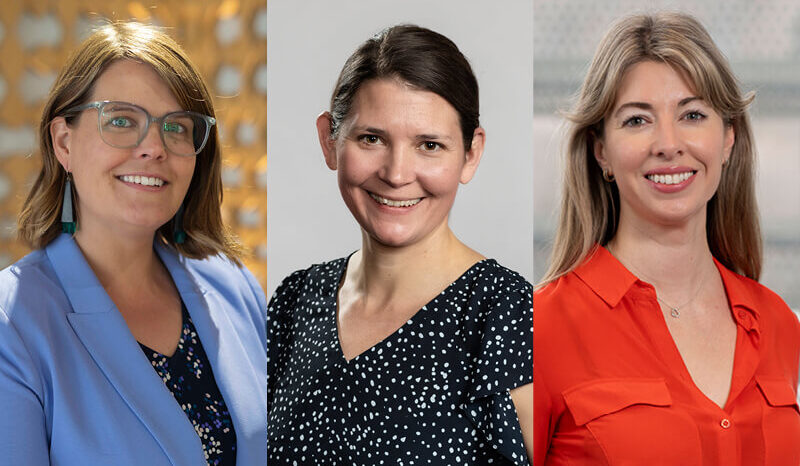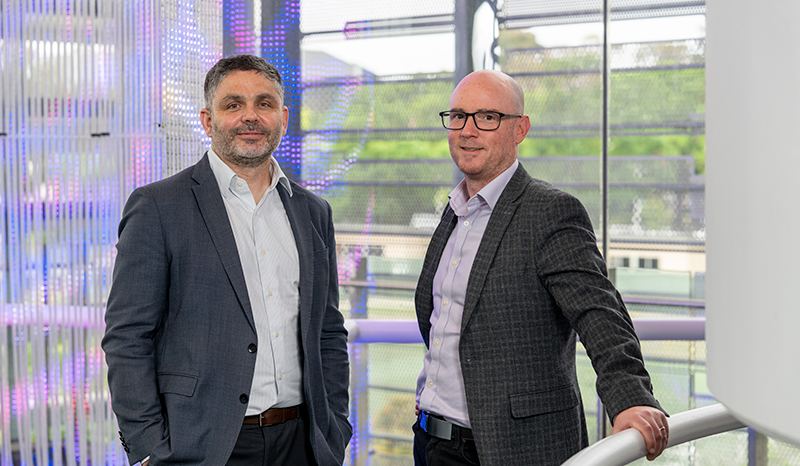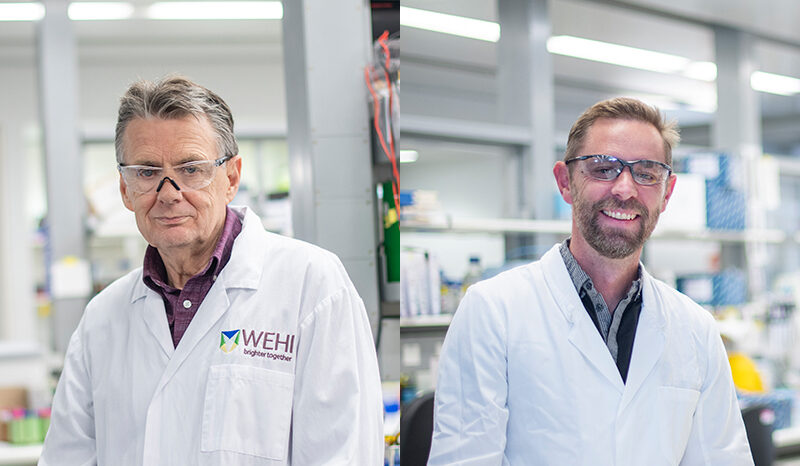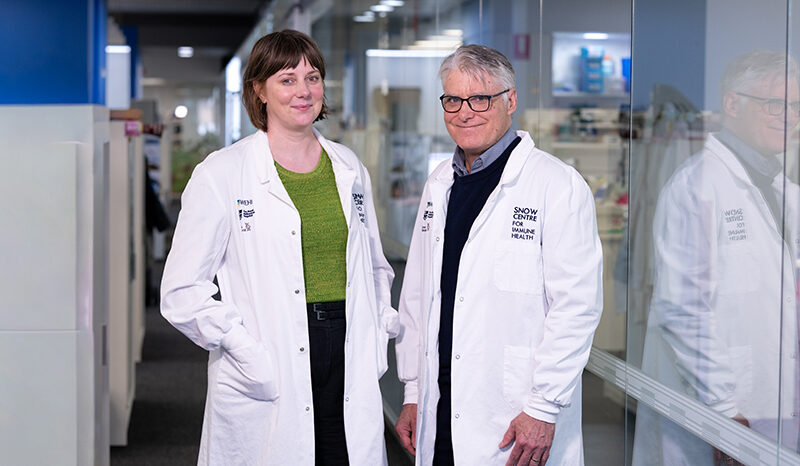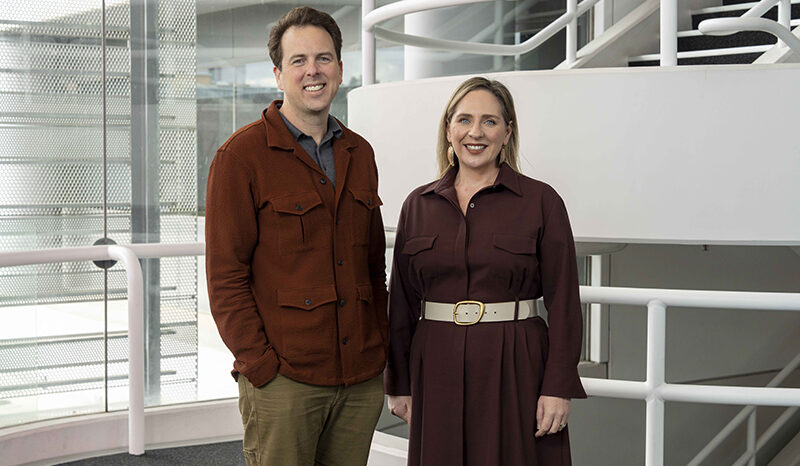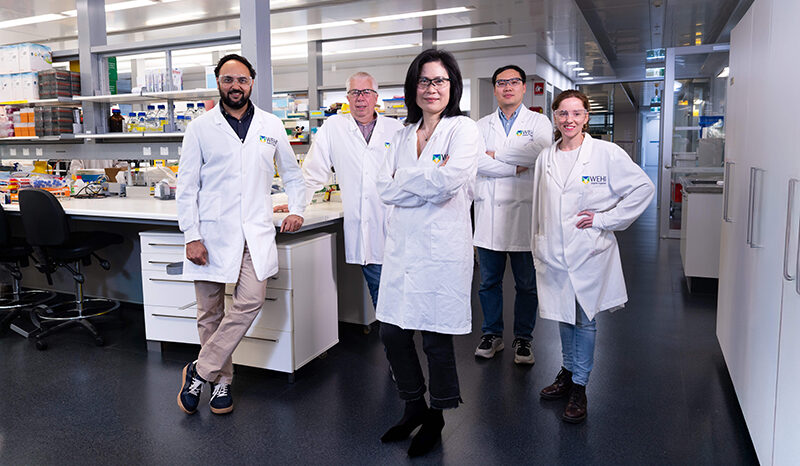CSL, WEHI and the University of Melbourne today announced that they have secured funding to create a start-up incubator to support and grow early-stage Australian biotech companies.
The incubator, to be located at CSL’s new global corporate headquarters under construction in the world-leading Melbourne Biomedical Precinct, will support start-up companies to translate promising medical research into commercial outcomes.
Made possible with financial and in-kind support from CSL, the world’s third largest biotech company, University of Melbourne and WEHI, plus a contribution from Breakthrough Victoria, an independent investment management company administering the Victorian Government’s landmark $2 billion Breakthrough Victoria Fund.
The incubator is scheduled to open to start-ups in 2023 and will be able to accommodate up to 40 early-stage companies from around Australia.
At a glance
- CSL, WEHI and The University of Melbourne have secured funding to join forces and create an incubator and commercial wet lab space for biotech start-up companies.
- The project partners are planning to provide funding and in-kind support and the Victorian Government’s new landmark Breakthrough Victoria Fund will provide funding to support the $95 million project.
- It will be Australia’s first and only incubator that is co-located with a leading biopharmaceutical company, providing all of the wrap around support start-ups need to translate Australian medical research into new treatments and therapies.
Driving translation
The incubator will be open to applications from small biotech companies who have engaged in early research and are seeking to take their discoveries to the next stage of development. In addition to affordable, state-of-the-art wet-lab facilities, equipment and office space, the incubator will provide a range of services, including commercialisation education programs, facilitated access to investors, industry mentoring and access to service providers.
Incubators reduce barriers to entry for start-ups through an affordable ‘one-stop shop’ that provides access to expert technical support and sophisticated technology platforms which can be expensive and cost-prohibitive to small companies. Start-ups that are incubated have a much higher five-year survival rate and accelerated growth trajectory compared with standalone entities.
WEHI director Professor Doug Hilton AO said the challenges that research scientists face when they spin-out a company or biomedical start-up include skill-gaps in translating their research into commercial products.
“The Melbourne Biomedical Precinct is known for its internationally competitive, high-quality scientific outputs, but lags behind its global precinct peers when it comes to translating biotech inventions into spin-outs and commercial outcomes,” Professor Hilton said.
“This collaboration will help to build a generation of corporate and management-skilled scientists who have the knowledge and confidence to run a successful biomed or biotech company and raise the calibre and quantity of translational outputs from the Melbourne Biomedical Precinct.”
A vibrant ecosystem
The incubator will advance the Victorian biomedical ecosystem and boost Australia’s commercialisation outputs. Best-in-class incubators integrate into an effective external ecosystem, like the Melbourne Biomedical Precinct, which is as critical to success as the infrastructure and services it will provide.
University of Melbourne Deputy Vice-Chancellor (Research) Professor Jim McCluskey said the incubator would provide a strong innovative environment that will nurture biotech start-ups, attracting more local and international investors, talent and companies into research collaborations.
“Universities are critical to meeting the major social, economic, environmental and medical challenges impacting on our communities. The creation of this biotech incubator builds on more than a century of collaboration between CSL, WEHI and The University of Melbourne, strategically supported by State government investment in translation of medical research, driving economic prosperity and impact for Victoria”.
“Bringing together talent, investment and research expertise in this way cements Australia’s reputation as leaders in biomedical education and research, working to improve the lives of many people around the world.”
Enhancing connectivity
The incubator will be the first and only incubator in Australia co-located with a leading biotechnology company.
CSL’s CEO, Paul Perreault, said Incubator residents would benefit from CSL’s onshore translational R&D expertise and capacity as they co-mingle with employees at its state-of-the-art R&D hub, providing opportunities for cross pollination, learning and the sharing of ideas.
“As one of the world’s leading biotechnology companies, CSL is driven by our promise as a patient-focused organisation, so this partnership clearly aligns with our Values and Purpose. We are well positioned to support incubator residents, whose experience often lies purely within the lab, better understand commercial aspects of medicines development that may be foreign or new to them,’ Perreault said.
Dr Andrew Nash, CSL’s Chief Scientific Officer said a thriving biomedical precinct would benefit us all.
“Formalising a place to nurture promising start-ups is a natural extension of our long-term support of and collaboration with many like-minded partners. We hope to see significant long-term health, social and R&D benefits from this initiative, including greater retention and upskilling of domestic research and development capabilities and an increase in commercial acumen of Precinct researchers.”
The incubator will be open to all high-quality early-stage spinouts from the precinct, across Victoria and around Australia.
Breakthrough Victoria CEO Grant Dooley said this was Breakthrough Victoria’s inaugural investment. "This project aims to provide a sustainable asset for decades by providing a catalyst to progress ideas to commercial outcomes," he said.
Located over two floors of CSL’s new corporate headquarters being built in the Melbourne Biomedical Precinct, the incubator will have one floor of purpose-built wet lab space and another for meetings and office space. There, the incubator will be embedded alongside seven floors of leading-edge laboratory and clinical manufacturing space supporting CSL’s own R&D program, in which the company invested more than US$1 billion globally the past fiscal year.
The incubator is expected to open in 2023 and welcomes residency applications from start-ups across Australia as well as internationally.
Start-ups interested in applying for residence in the incubator are encouraged to email incubator@csl.com.au.
Media enquiries
M: +61 475 751 811
E: communityrelations@wehi.edu.au


